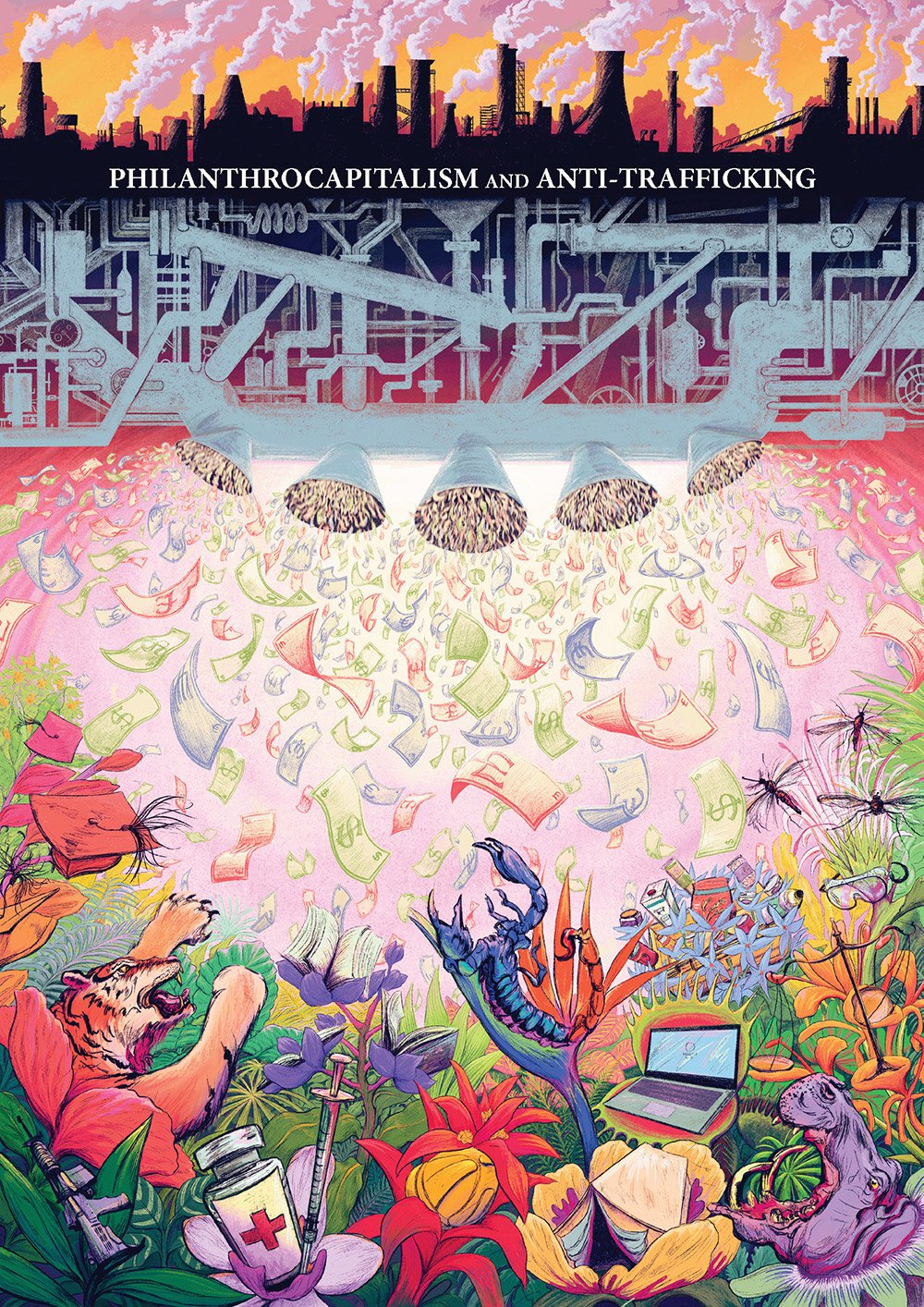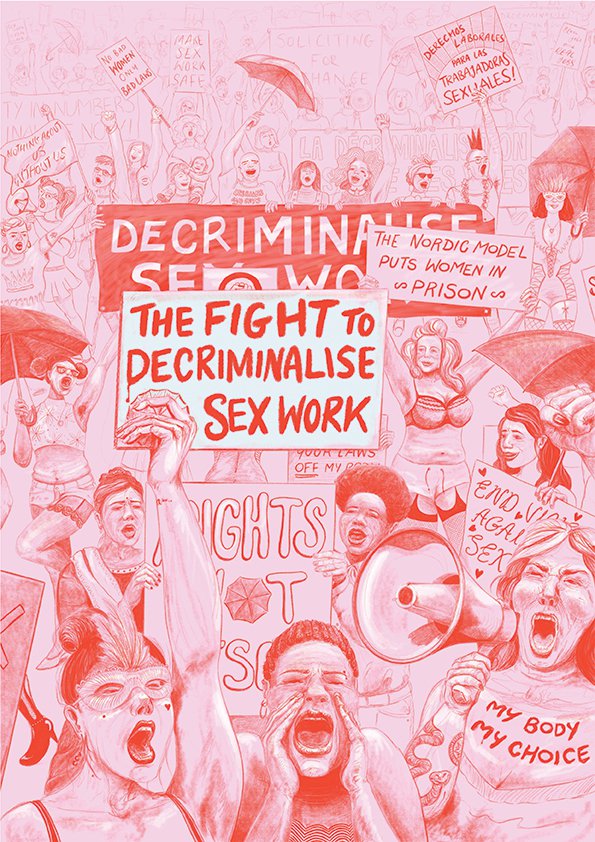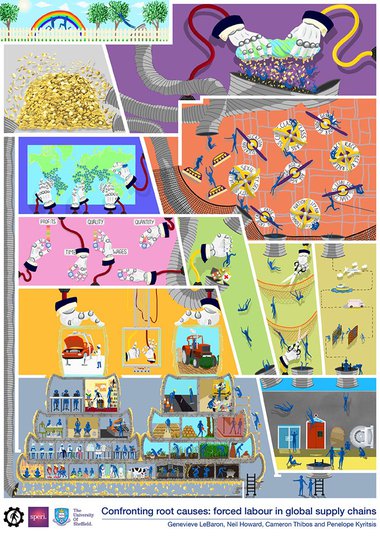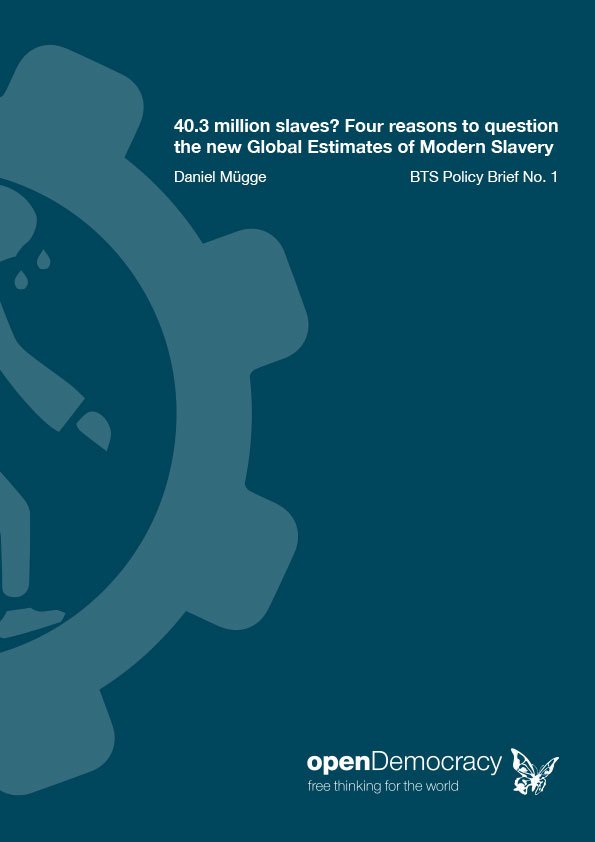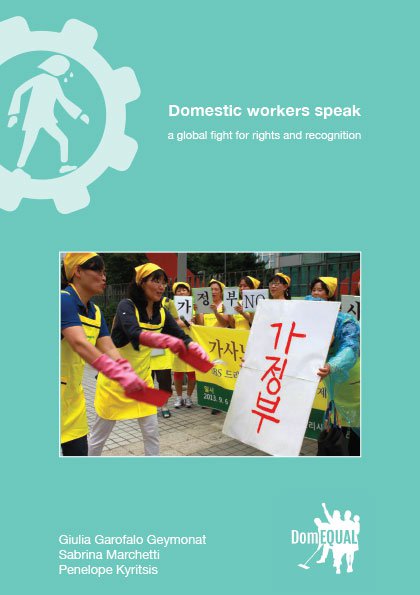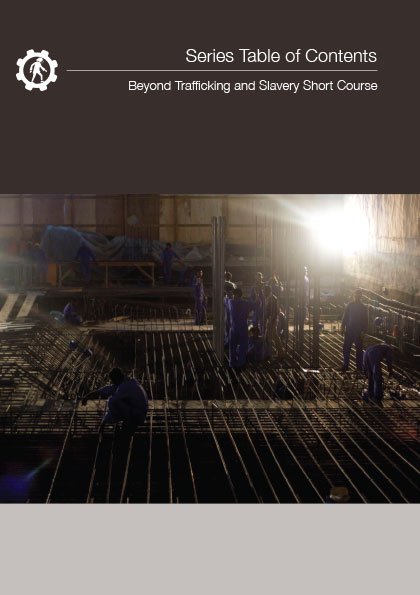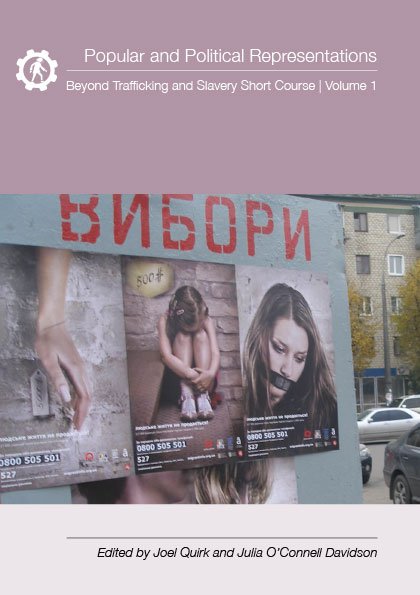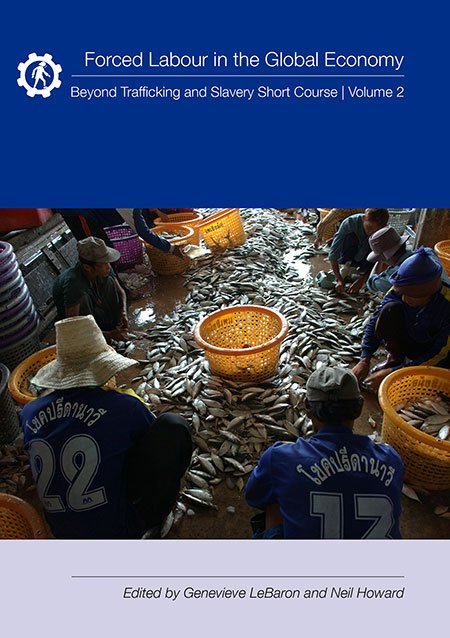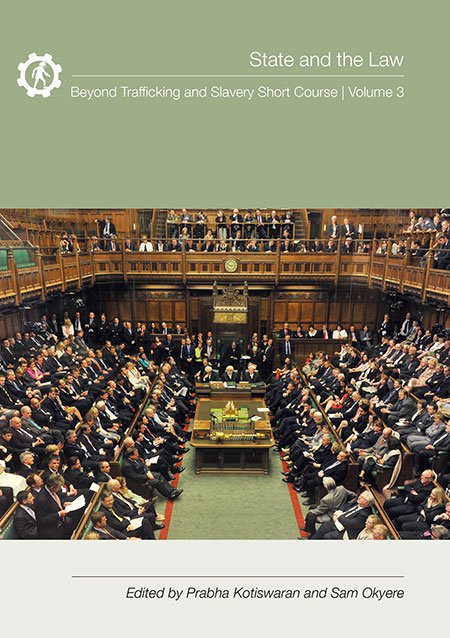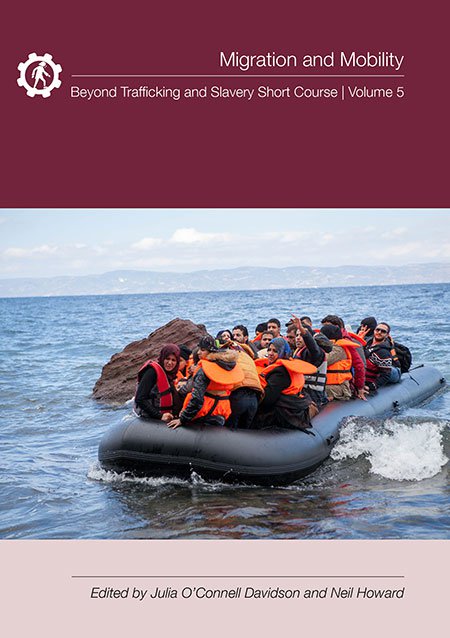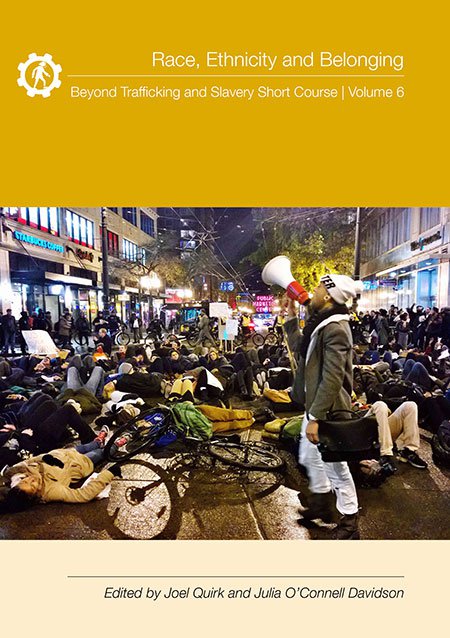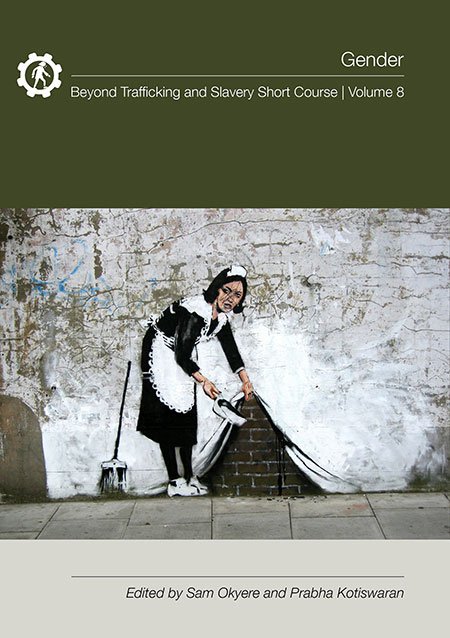
Welcome to the openDemocracy bookshop where we share our latest featured books.
When you buy any book through this page, money will go to support the author, independent bookshops and the journalism published by openDemocracy.
Looking for a particular book?
Try the search box.
Hear from the authors
Follow us
-
Published in:ourEconomy: Interview‘Repair is the reimagination of power’: Healing from the injustices of colonialism
Raj Patel and Rupa Marya, the authors of ‘Inflamed: Deep Medicine and the Anatomy of Injustice’, on building an...
-
Published in:Live discussionsBook Discussion: 'The Sex Lives of African Women'
Join Black feminist author Nana Darkoa Sekyiamah to talk about her book 'The Sex Lives of African Women' in which...
-
Published in:Dark Money Investigations‘A corruption of Conservatism’: how a cartel of Tory MPs broke British politics
In an extract from his book, Peter Geoghegan shows how the European Research Group became a tightly organised ‘party...
-
Published in:Live discussionsPeter Oborne and ‘The Assault on Truth’
Oborne’s new book covers “Boris Johnson, Donald Trump and the emergence of a new moral barbarism”. Get the inside...
-
Published in:Live discussionsIs Britain a petro-state?
From Shell and BP to North Sea oil, modern Britain was floated on an ocean of black gold. But as we face climate...
-
Published in:Home: OpinionWhen will there be more robots than humans in the workforce?
Read an extract from Eli Lee's 'A Strange and Brilliant Light' for this month's book club
Free books from Beyond Trafficking and Slavery
It's time to get off the fence on sex workers' rights
Joel Quirk, Emily Kenway and Cameron Thibos (eds)
Attitudes towards human trafficking and commercial sex can be roughly divided into three main camps: pro-sex workers’ rights, prostitution abolitionists, and 'on the fence'. The arguments favoured by the first two camps will already be familiar to many people. This new feature focuses upon the third camp: anti-trafficking activists and organisations who try their best to avoid taking a clear public position on the legal status of commercial sex. This is not a fringe project pursued by a small minority. It is not uncommon for fence-sitters to outnumber both advocates of sex worker rights and prostitution abolitionists within many anti-trafficking circles. Their strategic silence come with major costs.
What is exploitation?
Neil Howard, Joel Quirk and Cameron Thibos (eds)
This volume focuses upon the political, legal, and ethical challenges of drawing moral and legal lines between ‘acceptable’ and ‘unacceptable’ forms of exploitation under capitalism, a system in which profit is the primary goal. What ‘counts’ as exploitation in contexts where the deck is heavily stacked in favour of employers and against workers? The Palermo trafficking protocol does a poor job of addressing this key question. Although it establishes exploitation as integral to the definition of trafficking, it doesn’t define exploitation itself, nor does it clarify where this begins or ends. That's a problem. In this volume, leading experts on law, philosophy, economics, and sociology help us to sharpen our understanding.
Are we better off on the inside?
Joel Quirk, Neil Howard and Cameron Thibos (eds)
Most experts with first-hand experience of anti-trafficking or anti-slavery interventions and campaigns are well aware that they can be ineffective or compromised by other agendas. This recognition tends to be caveated with the claim that it is better to remain on the inside, despite the problems, to be better positioned to try and move things forward more productively over time. However, there remains a widespread reluctance to talk openly about the trade-offs that come with this decision, so there hasn’t been enough analysis of whether their underlying assumptions stand up to scrutiny. This debate asks this question directly.
Philanthrocapitalism and anti-trafficking
Jaine Chuang and Elena Shih (eds)
Philanthrocapitalism incorporates a deep, ideological commitment to market-based solutions to the world’s problems. The assumption at its core is that the same techniques, management styles, and value systems that enable corporations to amass tremendous wealth can and should be used to correct the world’s social problems. Philanthrocapitalists first discovered human trafficking as an area of intervention in the late 2000s. Their money and influence are now central to the work of the hundreds of organisations operating in this field, and as their funding prerogatives shift they are able to shape and reshape the nature of anti-trafficking interventions. Such power comes with opportunities as well as risks. This policy debate asks whether and how philanthrocapitalism has helped or hurt global anti-trafficking efforts.
After the 'migration crisis': how Europe works to keep Africans in Africa
Liliane Mouan, Simon Massey and Cameron Thibos (eds)
Migration from Africa to Europe has, since the long summer of migration in 2015, been at the top of the European political agenda. As right-wing parties have gained at the ballot box through their anti-migration rhetoric, the priority for most policymakers has been to look tough and to prevent such an experience from ever happening again. To this end the European Union and individual EU member states have devoted large amounts of resources to trying to keep people in Africa. As this feature demonstrates in great detail, an awful lot has been going on.
The fight to decriminalise sex work
What is the best strategy for ensuring that people who sell sex are protected? Should the state ban it entirely? Should it allow the sale of sex but not its purchase, as the increasingly widespread ‘Nordic’ model does? Or decriminalise it altogether? These questions are endlessly repeated, but for sex workers themselves the debate is long over: only decriminalisation increases their safety. We believe them, so this is where this book begins.
Research as more than extraction? Knowledge production and sexual violence in post conflict African societies
Annie Bunting, Allen Kiconco and Joel Quirk (eds)
Sexual violence presents all kinds of challenges for researchers. Many survivors are reluctant to share their experiences because of the lasting effects of trauma and stigma. Researchers sometime parachute into ‘exotic’ locations, extract valuable information, and then return home to build their careers. It can also be tempting to simplify and sensationalise sexual violence, especially when it takes place in African countries.
This collection attempts to chart a different path. Research methods cannot be divorced from research ethics. Our contributors draw upon applied examples from Uganda, Sierra Leone, Congo, and Nigeria in order to reflect upon the challenges involved in asking questions and conducting fieldwork, interacting with communities and brokers, and the layered effects of privilege and position. Whenever knowledge about sexual violence gets produced we need to inquire about the story behind its collection and dissemination. How is knowledge produced? Who benefits? Who pays? Who speaks? To what kinds of audience?
Organising precarious workers in the Global South
The workers of the world face numerous challenges. Many debates around the future of labour, such as the rise of the so called ‘gig economy’, tend to focus on experiences and trends within the Global North. But we need to start from the experiences of the Global South, where no such standard employment contracts or labour rights have ever prevailed. There precarious and informal work has always been the norm rather than the exception, ranging today from two thirds to three quarters of the total labour force.
As the contributions to this volume demonstrate, there is now a move towards closer collaboration between the organised labour movement and informal and precarious workers. To ‘organise the unorganised’ has always been a challenge for the trade union movement, since these workers are less accessible and fall outside the industrial relations bargaining structures. Yet trade unions across the South, even ones with strong corporatist traditions, now recognise that the working class reaches well beyond the factory and that their own future depends on engaging with these ‘non-traditional’ layers.
Universal basic income: a way through the storm?
Neil Howard and Cameron Thibos (eds)
If we really want to end ‘modern slavery’, and if we’re serious about protecting people from all forms of exploitation, then why not ensure that everyone always has a minimum amount of money in their pocket so that they can say no to bad work?
The future of work
Cameron Thibos and Joel Quirk (eds)
All migrants deserve protection as migrants. All workers deserve protection as workers. Modern slavery and human trafficking campaigns selectively focus upon a small minority of vulnerable migrants, and a small minority of precarious workers. These cases are the tip of the iceberg.
Confronting root causes: forced labour in global supply chains
Genevieve LeBaron, Neil Howard, Cameron Thibos and Penelope Kyritsis
It is by now widely recognised that effectively tackling forced labour in the global economy means addressing its ‘root causes’. Policymakers, business leaders and civil society organisations all routinely call for interventions that do so. Yet what exactly are these root causes? And how do they operate?
The two most commonly given answers are ‘poverty’ and ‘globalisation’. Although each may be foundational to forced labour, both terms are typically used in nebulous, catch-all ways that serve more as excuses than explanations. Both encompass and obscure a web of decisions and processes that maintain an unjust status quo, while being used as euphemisms for deeper socio-economic structures that lie at the core of the capitalist global economy.
The question thus becomes: exactly which aspects of poverty and globalisation are responsible for the endemic labour exploitation frequently described with the terms forced labour, human trafficking or modern slavery? Which global economic processes ensure a constant and low-cost supply of highly exploitable and coerced workers? And which dynamics trigger a demand among businesses for their exploitation, making it possible for them to profit from it?
This 12-part report is an attempt to answer these questions in a rigorous yet accessible way. With it, we hope to provide policymakers, journalists, scholars and activists with a road map for understanding the political economy of forced labour in today’s “global value chain (GVC) world”.
Praise for Confronting Root Causes
“This report is a game changing explanation of why attempts to ensure human rights in global supply chains are failing. The authors’ questioning of the widely accepted 'truths' of globalization and its impact are a wake-up call to all those brand owners who invest more in risk management than in reassessing how they do business.”
—Judy Gearhart, Executive Director, International Labor Rights Forum
“This report offers a powerful analysis of the root causes of labour exploitation in today’s global supply chains. Combining top-drawer scholarship with real political clarity, it shows that exploitation is no accident – and it is the big players who are responsible.”
—Cathy Feingold, Director, International Department, AFL-CIO
“For those who wish to go beyond facile explanations and instead seek deeper understanding of exploitation and abuse within supply chains, this powerful report is a must-read. Its mix of excellent research and sharp analysis shows that labour exploitation is no accident. No more tinkering around the edges, it is time for fundamental shifts in our global economy.”
—Anannya Bhattacharjee, International Coordinator, Asia Floor Wage Alliance
40.3 million slaves? Four reasons to question the new Global Estimates of Modern Slavery
Daniel Mügge
The fusion of the Walk Free Foundation's Global Slavery Index with data from the ILO to create the 2017 Global Estimate of Modern Slavery invites debate and scrutiny on a new level. As the report notes, “[to] be effective, policies and programmes must be grounded in the best possible understanding of the root causes of modern slavery at both the national and global levels" (p. 15). I couldn’t agree more, and therein lies the problem. We must hold tools like indices and indicators to the highest standards because they are intentionally designed to shape the behaviour of governments, international organisations, and citizens around the world. GEMS will act as a benchmark for the future evolution of modern slavery, so the scope for continually updating the methodology has shrunk – otherwise figures over time would be impossible to compare.
So as long as significant data problems persist – and important ones do – it remains a deficient yardstick for progress. If GEMS measurements are skewed, the policy prescriptions based on them will be skewed as well. The report’s authors should expect governments to take notice of its findings and to consider policies that will make them look better – so if the measurements themselves are off, policies may equally veer in an undesirable direction. The stakes in the struggle against exploitation are too high to tolerate misleading conclusions.
Shadows of slavery: refractions of the past, challenges of the present
Alice Bellagamba, Marco Gardini, Laura Menin (eds)
This collection is an outcome of five years of collective research and discussion aimed at bringing the legacies of nineteenth century enslavement together with examples of contemporary bondage and exploitation that may or may not fall under the rubric of ‘modern slavery’. It demonstrates one way of creating a contextually balanced understanding of how the past and present connect with each other, and do not. It interrogates, in the first place, which past matters in specific situations: is it the centuries-long past of the Atlantic slave trade, or the nineteenth century histories of regional and interregional enslavement? All together, these contributions ‘descend’ into the everyday worlds of people who live the consequences of historical slave systems or who happen to find themselves ‘trapped’ in novel forms of socio-political inequality, racism, labour exploitation and sexual and moral violence.
Domestic workers speak: a global fight for rights and recognition
Giulia Garofalo Geymonat, Sabrina Marchetti, and Penelope Kyritsis (eds)
Awareness has greatly increased over the past decade about the living and working conditions of the world’s 67 million domestic workers. We now know that abuse and exploitation, child labour, discrimination, starvation, violence, and debt bondage are disproportionately represented within this traditionally unorganised and invisible sector. What is less known is that the grassroots mobilisation of workers resisting their exploitation and stigmatisation has, against all odds, also been growing over the past 20 years. In order to get a better understanding of some of these issues that often remain hidden, we asked domestic workers’ rights activists themselves to tell us directly about their movement – their struggles, their experiences as domestic workers, the reasons for their ongoing exploitation, and the strategies to fight it.
Slavery: memory and afterlives
Josie Gill and Julia O'Connell Davidson (eds)
A call for remembrance is not necessarily a call for closer attention to the details of history. It is not essential to be well acquainted with geopolitics or military history in order to remember the war dead. Nor does remembering those whose lives were destroyed by slavery require a knowledge of historic slave regimes. But in former slave and colonial states like Britain, there is a difference between the remembrance of war and the remembrance of transatlantic slavery. Because the latter disrupts the dominant, self-congratulatory national narrative about a country’s love of liberty, equality, democracy and justice. So what exactly should or can we remember, and why, and what should we ‘do’ with these memories? This volume reflects on these questions as they relate to the memory of slavery and the different conversations that can be had about its past and present. But they do not, and cannot, provide the answer to these questions, for there is no simple or single answer.
Sex workers speak: who listens?
P.G. Macioti and Giulia Garofalo Geymonat (eds)
Gendered, racist, classist, homophobic, and transphobic violence haunts the world of sex work, and many of us believe that states, intergovernmental organisations, and NGOs should do more to help. Yet a lot is being done, the problem is the efficacy of these interventions. This volume addresses the violence, exploitation, abuse, and trafficking present in the sex industries, but it does so from the perspective of sex workers themselves. These are the women, men, and transgender people who are directly touched by interventions made ‘in their name’, and they are the people who actively and collectively resist all forms of violence against them. By publishing their voices directly we hope to help readers resist indifference, on the one hand, and to become more critical of states’ interventions, which are widely regarded and legitimated as necessary to combat ‘trafficking’, on the other.
Beyond Slavery Short Course
Activists, academics, trade unions, governments and NGOs around the world are trying to understand and address forced labour, human trafficking, and modern slavery. New initiatives are constantly being tried out, however the frequently poor track record of past efforts in this area means that there is an urgent need for both additional research and further conversations regarding the best pathways forward. With labour exploitation and inequality on the rise, and debates over migration intensifying, high-level policy debates regarding forced labour, trafficking, and slavery can be expected to continue for the foreseeable future.
The BTS Short Course seeks to constructively influence these debates by bringing together and evaluating the best available research under one roof. It is designed to inform a new wave of scholars, policy-makers, and practitioners who are currently making their way through school systems and universities around the world. Our approach combines the rigour of academic scholarship, the clarity of journalism, and the immediacy of political advocacy in order to address the political, economic, and social root causes of exploitation, vulnerability, and forced labour around the world.
The BTS Short Course is the world's first open access ‘e-syllabus’ on forced labour, trafficking, and slavery. With 167 contributions from 150 top academics and practitioners, this 900-page, eight-volume set is packed with insights from the some of the best and most progressive scholarship and activism currently available. We have made this free for download so that not only practitioners and students in the global north can access this scholarship, but also readers working in organisations and institutions unable to pay for expensive academic journal and subscription services.
1. Popular and political representations
Joel Quirk and Julia O'Connell Davidson (eds)
Much of what people think they know about human trafficking and ‘modern-day slavery’ is inaccurate, incomplete or unfounded. In order to help get their message out, political activists and government officials have repeatedly turned to a range of simplistic and misleading images, dubious ‘statistics’, and self-serving narratives. These narratives have had all kinds of negative consequences. Thanks to an often voyeuristic interest in commercial sexual abuse, much less interest has been directed towards ‘unsexy’ problems and practices. Thanks to the construction of migration as a problem and threat, policy responses have focused upon telling migrants to ‘stay at home’. Thanks to the popularity of ‘slavery as exception’, global patterns of systemic abuse, exploitation, and discrimination have been routinely dispatched to the margins of political conversations. Thanks to the depiction of trafficking victims as ‘exotic outsiders’ in need of rescue and salvation, there has been an uncritical return to some of the worst tropes of the colonial ‘civilising mission’. This must change.
2. Forced labour in the global economy
Genevieve LeBaron and Neil Howard (eds)
There is a growing and sober awareness among international policymakers and within global civil society that human trafficking, slavery and forced labour are not anomalies perpetuated by a few ‘bad apple’ employers. Rather, such severe labour exploitation is an endemic feature of the contemporary global economy. This edited collection brings together some of the sharpest minds from the worlds of academia and activism to investigate and shed light on the root causes of this exploitation. Its essays analyse how business demand for forced labour manifests in certain industries, as well as how political and economic factors combine to generate a supply of workers vulnerable to abuse. Written in intelligent yet accessible prose, it represents a key resource for policy, activism and research.
3. State and the law
Prabha Kotiswaran and Sam Okyere (eds)
The articles in this volume outline and critically interrogate the role of the state, national legislation and international conventions in shaping the understanding and construction of those conditions deemed to constitute modern forms of slavery. Our contributors further highlight the role of the state and national legislation in creating or allowing the varying forms of insecurities that necessitate entry into various precarious engagements. It is evident from these that the state plays a hugely significant role in the modern slavery discourse. It can be either a force for good or bad. Those who wish to see human rights and social justice realised at much higher level than that found in abolitionist discourse must recognise and be willing to engage politically with the state sponsored system of injustice.
4. On history
Joel Quirk and Genevieve LeBaron (eds)
Campaigners and governments leading the fight to end ‘modern-day slavery’ selectively appeal to history to help justify their current activities. They uncritically praise Anglo-Saxon anti-slavery efforts, but have remarkably little to say about the larger history of enslavement, slave resistance, or the contemporary legacies of historical slave systems. Centuries of severe exploitation, racial subjugation, and violent abuse have too often been lost in the rush to celebrate the ‘moral triumph’ of abolition. The legal abolition of slavery was not a gift from great emancipators. Nor did it mark an end to the need for resistance. Former slaves were never compensated for their decades of toil and abuse, and their former masters made every effort to defend their privileges, contributing to global patterns of wealth, poverty, inequality, and discrimination that remain with us to this day.
5. Migration and Mobility
Julia O'Connell Davidson and Neil Howard (eds)
Mobility is and always has been an essential part of humanity’s economic, social, cultural and political life. To be able to move freely is a good. Yet in our unjust world, it is also an unearned and unequally distributed privilege. This volume reflects on that privilege, and on the suffering that results when states restrict access to it. The articles included here will explode the spurious contemporary binary between ‘smuggling’ and ‘trafficking’, and will argue that anti-trafficking discourse hides more than it reveals. Most crucially, it hides how state restrictions on the freedom of movement are the true threat to human wellbeing. Open the borders!
6. Race, Ethnicity and Belonging
Joel Quirk and Julia O'Connell Davidson (eds)
Slavery cannot be reduced to a chapter in history that is now closed, but must instead be regarded as a continuing and fundamental wound. As recent campaigns around ‘black lives matter’ and the prison industrial complex have further demonstrated, the idea of race—and racism as a system of domination—are intimately bound up with the history and legacies of transatlantic slavery. Despite their professed concern with slavery today, self-proclaimed ‘modern-day abolitionists’ have remarkably little to say about slavery and racism. They instead argue that we need to think about poverty, rather than race, since ‘modern slavery’ is colour blind. This book seeks to expose the profound limitations of this popular approach. Over the course of twenty chapters, some of the world's leading experts illustrate how and why racism and other forms of discrimination continue to shape contemporary patterns of marginalisation, exclusion, and government and corporate complicity.
7. Childhood and Youth
Neil Howard and Sam Okyere (eds)
This volume, replete with contributions from world-renowned children’s rights academics and practitioners, argues that the dominant abolitionist discourse and its associated policy directives often impede the best interests and rights of the children they purport to ‘protect’ or ‘rescue’. This largely happens because the protections proposed are politically disengaged, fail to tackle the underlying causes of children’s insecurities, and often lack thorough understanding of the social, cultural, and economic circumstances surrounding young people’s work, mobility, and lives. The volume therefore advocates for an approach to securing child and youth welfare that is more nuanced, context specific, non-dogmatic, politically engaged, and takes young people’s own accounts seriously.
8. Gender
Sam Okyere and Prabha Kotiswaran (eds)
Women and girls, 'new abolitionists' say, are disproportionately affected by trafficking because of their prevalence in domestic, care, and sex work. This volume questions the selective focus on these activities, which are alternately characterised as violence and work. It also interrogates still-unresolved questions regarding the status of such work, as well as the ways in which it is understood, valued, recognised, and regulated. Our contributors highlight how gendered inequalities within and between households, as well as within and between nations, anchor the structural violence of global capitalism. Their calls for action push back against the present tendency to dwell on the images of the passive, innocent, vulnerable female victim whose only option is to be 'saved' from bad men. Interventions based on such imagery too often result in women being 'rescued' into situations that do little to improve their circumstances and worse still perpetuate their experiences of domination. Instead, they argue for an emancipatory agenda that fully values the labour and agency of women, one which dismantles prejudice and constraint rather than saves them back into a deeply unequal system.
Contributors to the BTS Short Course
Alarmphone
Erica ALLINA
Bridget ANDERSON
Rutvica ANDRIJASEVIC
Sundari ANITHA
Ana Lucia ARAUJO
Helen BAILLOT
Christian BARRY
Tanja BASTIA
Harald BAUDER
Laya BEHBAHANI
Jeroen BEIRNAERT
Alice BELLAGAMBA
Amanda BERLAN
Rhian BEYNON
Gurminder BHAMBRA
Eileen BORIS
Michael BOURDILLON
Jo BOYDEN
Laura BRACE
Karen BRAVO
Brenda Oude BREUIL
André BROOME
Annie BUNTING
Joseph CARENS
Kristen E. CHENEY
Sealing CHENG
Hae CHOO
Janie CHUANG
Jason CONGDON
Sharon COWAN
Viviene CREE
Fraser CRICHTON
Gina CRIVELLO
Katie CRUZ
Hugh CUNNINGHAM
Monisha DAS GUPTA
Simanti DASGUPTA
Mike DOTTRIDGE
Roxanne Lynn DOTY
James ESSON
Janine EWEN
Sara R. FARRIS
Susan FERGUSON
Jane FREEDMAN
Bill FRELICK
Nicola FRITH
Judge FUDGE
Nicholas GENOVA
Global Network Of Sex Work Projects
Tanya GOLASH-BOZA
Thea GRUCHY
Lucrecia Rubio GUNDELL
Will GUY
Kristen HAN
Jason HART
Iman HASHIM
Dina HAYNES
Karin HEISSLER
Kate HODGSON
Liam HOGAN
John HOLMWOOD
Neil HOWARD
Roy HUIJSMANS
Ali Moussa IYE
Mark JOHNSON
Cecily JONES
Kerwin KAYE
Kamala KEMPADOO
Kyunghee KOOK
Prabha KOTISWARAN
Julia LAITE
Genevieve LEBARON
Carol LEIGH
Jens LERCHE
Alex LICHTENSTEIN
Roda MADZIVA
Andrea MAJOR
Jilian K. MARSH
Samuel MARTÍNEZ
Kate MCDONALD
E. Ann MCDOUGALL
Siobhán MCGRATH
David MCNALLY
Sally MERRY
Alessandra MEZZADRI
Fabiola MIERES
Alice M. MILLER
Charles W. MILLS
Sverre MOLLAND
Anne Elizabeth MOORE
Vanessa MUNRO
Zuzanna MUSKAT-GORKA
Jennifer MUSTO
William MYERS
Garrett NAGAISHI
Alf NILSEN
Luke NORONHA
Julia O’CONNELL DAVIDSON
Sam OKYERE
Treena ORCHARD
Ingrid PALMARY
Letizia PALUMBO
P.J. PATTERSON
Antoine PÉCOUD
Nicola PHILLIPS
Sine PLAMBECH
Jessica R. PLILEY
Vanessa PUPAVAC
Joel QUIRK
Jayaseelan RAJ
Vibhuti RAMACHANDRAN
Ben RICHARDSON
Marlise RICHTER
Sébastien RIOUX
Kate ROBERTS
Caroline ROBINSON
Dylan RODRÍGUEZ
Ben ROGALY
Benedetta ROSSI
Srila ROY
Andreas RÜHMKORF
Julija SARDELIĆ
P. Khalil SAUCIER
Arthur SCARRITT
Nelly SCHMIDT
Alessandra SCIURBA
Benjamin SELWYN
Jared SEXTON
Svati SHAH
Nandita SHARMA
Elena SHIH
Robbie SHILLIAM
Stephanie J. SILVERMAN
Gretchen SODERLUND
James Brewer STEWART
Inka STOCK
Kendra STRAUSS
Judith SUNDERLAND
Marcus TAYLOR
Patrizia TESTAI
Teodora TODOROVA
Jo VEAREY
Lisa WADE
Ronald WEITZER
Karen WELLS
Lucy WILLIAMS
Rachel WILSHAW
Edlie WONG
Tryon P. WOODS



